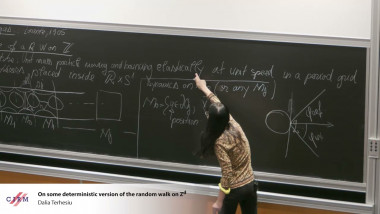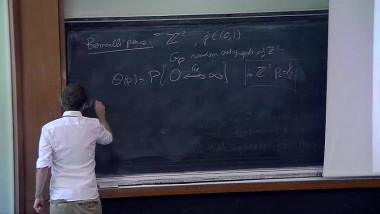Merging rate of opinions via optimal transport on random measures
Apparaît dans la collection : Autumn school in Bayesian Statistics / École d'automne en statistique bayésienne
The Bayesian approach to inference is based on a coherent probabilistic framework that naturally leads to principled uncertainty quantification and prediction. Via posterior distributions, Bayesian nonparametric models make inference on parameters belonging to infinite-dimensional spaces, such as the space of probability distributions. The development of Bayesian nonparametrics has been triggered by the Dirichlet process, a nonparametric prior that allows one to learn the law of the observations through closed-form expressions. Still, its learning mechanism is often too simplistic and many generalizations have been proposed to increase its flexibility, a popular one being the class of normalized completely random measures. Here we investigate a simple yet fundamental matter: will a different prior actually guarantee a different learning outcome? To this end, we develop a new distance between completely random measures based on optimal transport, which provides an original framework for quantifying the similarity between posterior distributions (merging of opinions). Our findings provide neat and interpretable insights on the impact of popular Bayesian nonparametric priors, avoiding the usual restrictive assumptions on the data-generating process. This is joint work with Hugo Lavenant.















